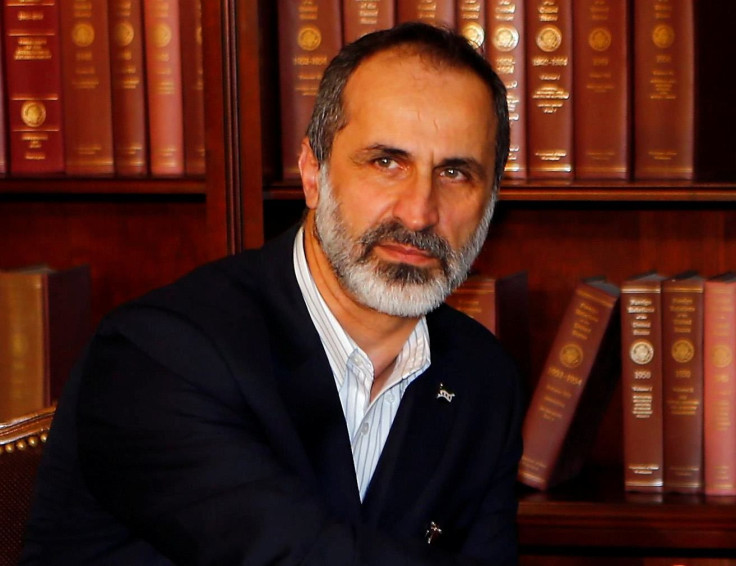Syrian Opposition Offers Assad Olive Branch, Ready For Talks With President’s Deputy

Syrian opposition coalition Monday reiterated its leader’s proposition tabled last week to begin talks with President Bashar Al-Assad, accompanied by a surprise offer for his peaceful exit, to end almost two years of civil war.
Softening an absolute refusal to engage in negotiations with the government, the recently-elected head of the Syrian National Coalition, Sheik Ahmad Moaz Al-Khatib, Wednesday expressed willingness for the first time to hold talks with a government envoy.
"I ask the regime to send [Vice-President] Farouq al-Sharaa—if it accepts the idea—and we can sit with him," Khatib told Al-Arabiya TV on Monday.
"The issue is now in the state's court... to accept negotiations for departure, with fewer losses."
He said it was not "treachery" to seek dialogue to end the conflict.
Sharaa, a Sunni Muslim, has implicitly distanced himself from Assad's crackdown on the unrest saying in December that neither the government's forces nor the rebels can win the conflict.
He told Lebanese newspaper Al-Akhbar that the situation was worsening and a "historic settlement" was needed.
Sharaa is not believed to be part of Assad's inner circle, which is mostly constituted by members of his family and his minority Alawite sect.
Khatib, who met with the foreign ministers of Assad’s allies, Russia and Iran for the first time Saturday, added that the regime had to take a clear stand on dialogue and that the opposition was softening its stance in the interest of the Syrian people and to help the regime stand down and leave peacefully.
After his meeting with the Russian Foreign Minister, Sergei Lavrov, the Khatib said: "Russia has a certain vision but we welcome negotiations to alleviate the crisis and there are lots of details that need to be discussed."
Following a meeting with Khatib, Iranian Foreign Minister, Ali Akbar Salehi called for the formation of a joint transitional government from among members of the regime and the opposition under an U.N. supervision leading to elections and a new constitution.
Though Salehi did not go into the specifics of the proposed democratic transition, he had asked: "If you ask for the government to stand down before negotiations, who do you negotiate with?"
Assad, in early January, said there would be no dialogue with people he called traitors or "puppets made by the West."
"The first stage of a political solution would require that regional powers stop funding and arming (the opposition), an end to terrorist operations and controlling the borders. We will not have dialogue with a puppet made by the West,” he had said.
According to a U.N. report released Jan. 2, more than 60,000 people are estimated to have been killed in the 22-month conflict, while more than 600,000 Syrians are believed to have fled into neighboring countries to escape the violence.
© Copyright IBTimes 2024. All rights reserved.












